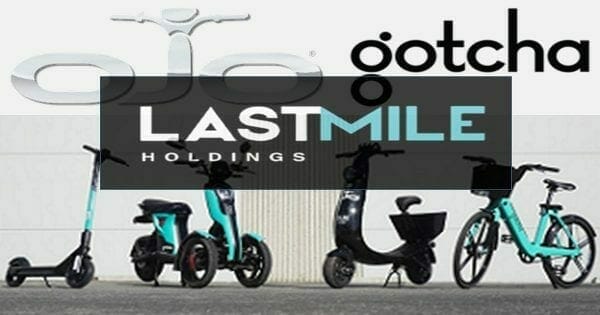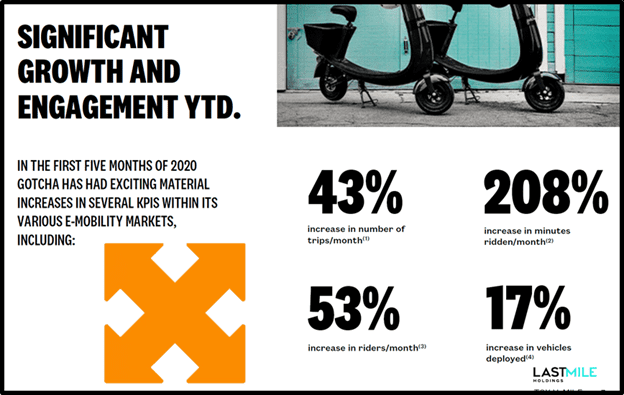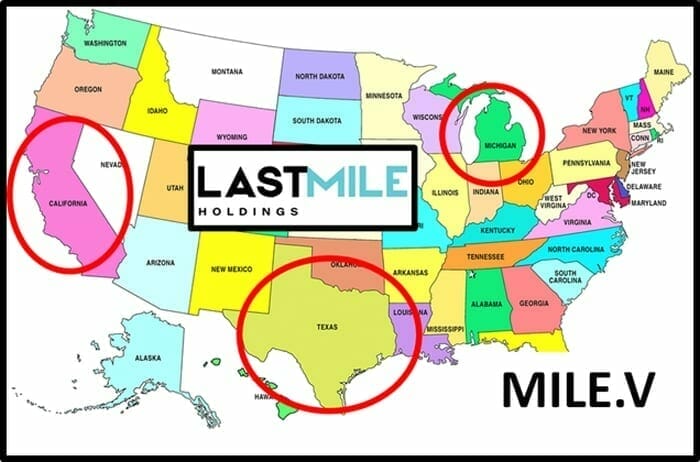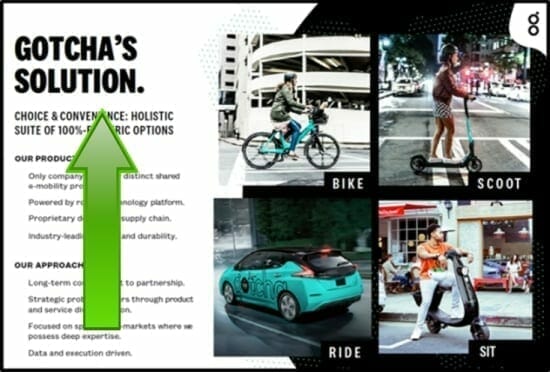Gotcha, subsidiary of Last Mile Holdings (MILE.V) has extended its business during the COVID-19 pandemic by offering its vehicles to local restaurants and grocery stores for take-out orders and light groceries. Businesses can rent Gotcha’s mobility scooters and other products at a discounted rate to do their deliveries while reducing overall delivery costs and employee layoffs.
Most companies are getting shafted during COVID-19. They’re not considered essential and can’t justify keeping their workers on. They’re losing revenue, dipping into their savings and hopefully at home helping the cause by not going anywhere and tamping that curve down. But a few companies are lucky enough to get the nod from government as essential services, and these are the ones keeping us flush with food, and other required necessities.
Gotcha is recognized as public transit, and is therefore designated an essential service, letting them continue to operate. The intends on operating its shared mobility systems for essential travel as long as they can. The company’s cleaning protocols following the guidelines set by the CDC, and help their riders and employees during COVID-19. Homeland Security considers the company’s vehicles to be a form of public transportation, and unless that changes they’ll continue to stay open for their riders.
But the real money nowadays is in food delivery.
“During an 8-month pilot program with one of the largest food delivery app companies last year, we learned that food deliveries on our sit down scooter were over 30% more efficient than single occupancy cars. We see last mile deliveries of food and packages as a significant growth opportunity for Gotcha Mobility,” said Max Smith, chief executive officer of Last Mile Holdings.
Normally, Gotcha’s business model involves shared electric mobility vehicles. Think ride share involving scooters, and they’re number three in the U.S. in this specialized niche. They want to take people from the steel imprisonment of single-occupancy cars and put them into efficient, sustainable, micro-transit products, which provide excellent opportunities for university students and other cash-poor demographics to get around without having to result to public transit.
Here’s what we wrote about them back in January.
Gotcha has been in the micro-mobility game for 10 years, having started with electric rideshare vehicles and pedal bikes before moving into into e-bikes, e-scooters, and e-trikes. Their principle focus was university and small to mid-size municipalities, and they’ve since secured approximately 20,000 permits, 80% of which are exclusive.
They have taken the time to build partnerships with the cities they operate, and with universities. This has helped them spread the word about the company’s delivery service, and facilitated introductions with local businesses. They’re also in direct communication with each partner, determining and serving their requirements during this time.
“We are seeing an increase in ridership which clearly shows the strength of our micro-mobility business. We are so glad our riders are committed to sustainable transportation when they need it and look forward to expanding our shared systems and product offerings across the country,” said Sean Flood, CEO of Gotcha.
In Q1, 2020, Gotcha launched bike-share e-mobility systems at the University of Georgia. In March, they followed suit with a scooter share at the University of North Carolina and the City of Durham with another in March. They have since recorded more than 100,000 trips on Gotcha products nationwide in Q1.
Given that this is a market that BIS Research says is going to reach $31.93 billion by 2029 at a CAGR of 11.95% by value, between 2019 and 2029, they’re not off to a bad start.
—Joseph Morton







